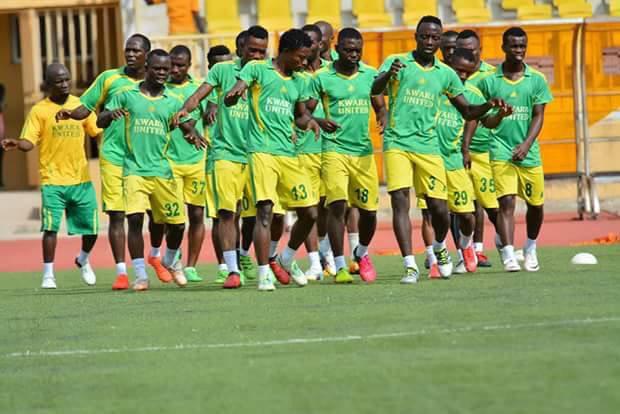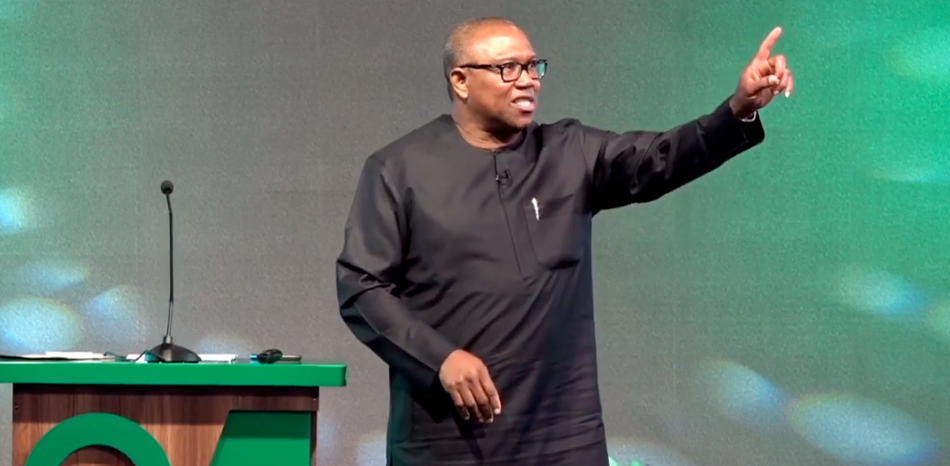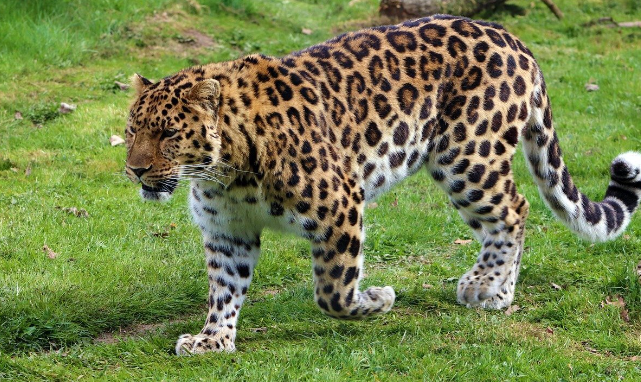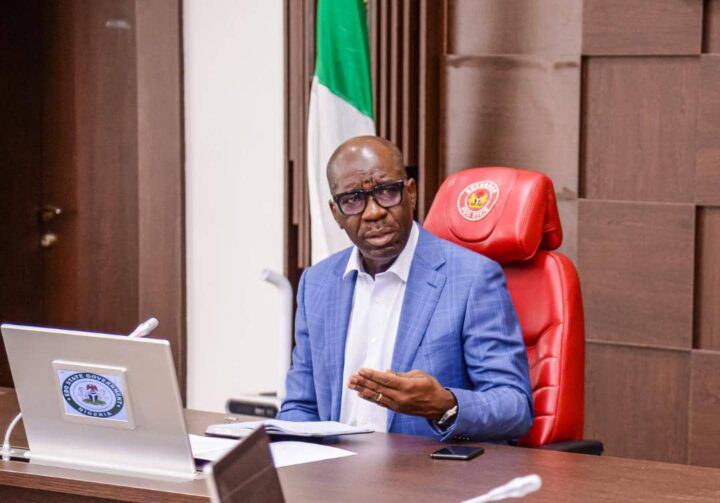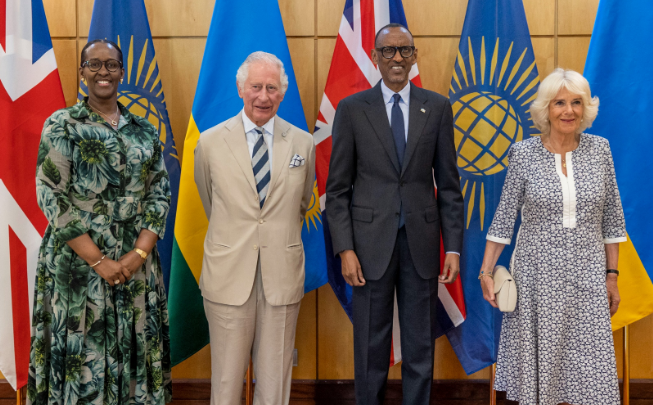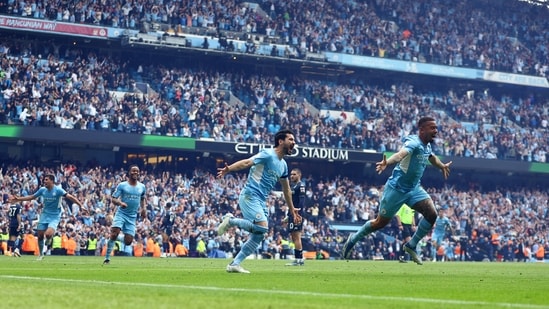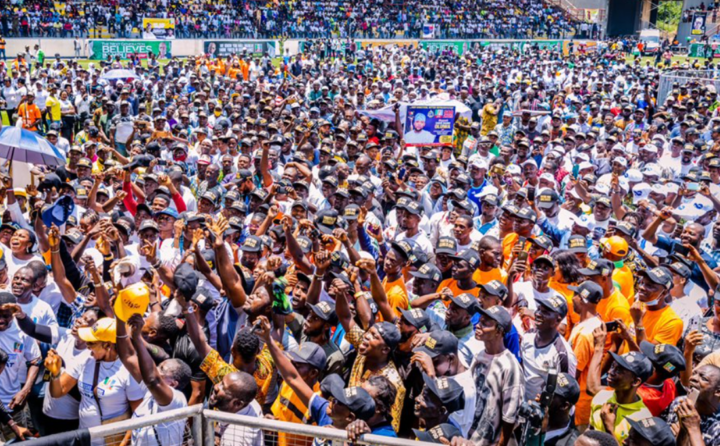Sports, especially football, is a massive money-making venture that sits on a global investment portfolio, worth billions in dollars. In terms of revenue, on an annual basis, football nets at least $50 billion globally. The sports industry worldwide is projected to be worth approximately $150 billion by 2023, according to a report.
European football leagues, in terms of revenue and overall level of competition, are reportedly the most prominent football market in the world. In the 2019/20 football season, professional football in Europe reportedly had an estimated market size of $25.2 billion. The Premier League contributed £7.6 billion to the UK economy and supported 94,000 jobs during a single season, despite the impact of COVID-19.
A robust and vibrant domestic football league is the bedrock of development for any nation that hopes to transform itself into a force to reckoned with in global football. This is so if they must reap the socio-economic benefits that come with playing the game. It is, therefore, not a coincidence that European and South American countries are stronger and richer footballing nations than others from other regions of the world like Africa, parts of Asia, and Oceania regions. The leagues employ players and auxiliary workers, from different parts of the world, including Africa and by implication, Nigeria. This is made possible by the high rate of returns on investment that are ploughed back into the leagues in a self-sustaining version.
If you are doubting the viability of the league, then you would have to ask yourself, why is it that the worth of Lionel Messi’s left foot is enough to write off the external debts of some Third World countries? Or why the worth of Cristiano Ronald’s right foot is more than the annual budgets of many African countries? Sadio Mané of Senegal, Mohammed Salah of Egypt, John Obi Mikel, Ahmed Musa of Nigeria, and a host of other African stars can give out millions in investment and charity without the slightest worry about running out of cash.
Advertisement
The leagues in those European countries that make this possible are run on a self-sustaining basis such that it even gives the clubs, especially the Europeans, the financial muscle to own franchises, and technical partners (clubs) abroad. Clubs like Manchester City of England are partners with the New York City of the US. Ajax Amsterdam of Holland, and Ajax Cape Town of South Africa, and Obuasi Goldfield of Ghana. We also have Manchester United and Royal Antwerp of Belgium. Chelsea football club and Vitesse Arnhem in the Dutch Eredivisie. There is also a kind of partnership between Manchester City and FC Girona of Spain, etc. Some clubs also have academies abroad that serve as a breeding ground for talents. They fund these academies from their earnings. AS Roma of Italy, for instance, has an academy in Abuja, while FC Barcelona owns an academy – FCB Escolar — in Lagos. These are eloquent testimonies to the viability of the clubs and the sustainable way clubs are run in saner footballing climes. The viability, it must be noted, is rooted in the principle of transparency and accountability. It is interesting noting the extent to which the football-ruling bodies in those climes are willing to go to entrench financial accountability to strengthen those leagues.
To underscore their unquenchable desires for accountability, Lille football club of France and Napoli football club of Italy have been under serious police investigations since the Ligue 1 side sanctioned the multimillion Euros move that took Nigeria’s Victor Osimhen to the Italian Serie A side. Investigators recently dug into the books of Lille FC of France over an allegation that the €81 million transfer fee it received from the transfer of the Nigerian striker to SC Napoli in the Italian Serie-A was diverted into a private company account of the club’s president, Olivier Létang. It was alleged that Lille football club got just €36 million out of whole amount. That is accountability — one element of culture that is badly needed but is sadly lacking in sports, especially football administration in Nigeria.
The fact that over 80% of clubs campaigning in the Nigerian Professional Football League (NPFL) are government-funded does not help matters. MFM FC of Lagos, Remo Stars of Ìjèbú-Òde, and perhaps, Dakadda FC of Uyo, are the only clubs not owned or sponsored by any Nigerian government entity. The Nigerian government’s money and accountability do not seem to have a point of convergence. In other words, there is no working relationship, whatsoever, between the two phenomena. Those who parade themselves as administrators of these clubs believe that there is always money to buy their way through any labyrinth of regulations that does not resonate with them. This is made the more attractive because the monies being spent are never accounted for. The clubs are run without a specific seasonal target. All they do is collect money, spend and wait for the next month’s subvention. There is hardly any accountability for money realised from sales of players either to rival clubs or foreign ones. Meanwhile, this is a cash cow of sorts for clubs all over the world because of not only the initial transfer fees that would come in hard currencies but also, the solidarity fees accruing from subsequent transfers. Since there is, however, no accountability in the running of most of these clubs, explanations as to how these fees are received and spent do not feature in the dictionaries of most clubs’ administrators in Nigeria, especially government-funded ones.
Advertisement
That brings us to the subject of this piece — Kwara United football club of Ilorin. The ownership of the football club is 100% a state government affair. The Kwara state government is fully responsible for the funding and appointment of those who run it. It is on record that Kwara United, despite never having played continental football in about two decades, are the richest parastatal in Kwara state, thanks to their healthy subvention. No state government establishment receives as much money as the club; not even the state’s tertiary educational institutions. They receive the highest monthly subvention among all the state government parastatals yet, they do not have any landed property such as a stadium acquired in its name. The (two) buses that convey them to and from match venues were procured by the state government. They do not have an office or a clubhouse built in the club’s name from the monthly subvention that they have been receiving over the years. Rather, their secretariat is a building donated again by the state government.
Prudent management of resources that is grossly lacking is a culture that defines how the humongous funds the government allocates on a monthly basis to them is spent. Before now, the club was receiving as monthly subvention, amounts above ₦30 million. Your eyes are not playing any prank on you. Over N30 million monthly, whether the season is on or not. With these facts, who is still wondering why many people struggle and would be ready to do anything, no matter how diabolical, so that they can become the chairman of Kwara United football club? It is like a civil war whenever it is time to appoint a new chairman. That is not peculiar to Kwara United football club alone. It is a Nigerian thing. You have millions of naira to spend monthly with hardly anybody asking you to give an account of stewardship. Come on! It would be another episode of “Ẹ gbé kíni yí wa, emi lo kan”.
The most shameful consequences of the culture of financial profligacy by previous administrators of the club is the recent monumental embarrassments of the team’s travelling contingents who are being waylaid by the team’s ex-players at away grounds around the country. I doubt if it is the best way to pay back the faith, support, and patience the people and government of Kwara state have had with the team, especially Governor Abdulrahman Abdulrazaq. I was reliably informed that someone very close to the governor is trying to facilitate a meeting between the state governor and the protesting creditor players. If that happens, then there could be light at the end of the tunnel. Such a meeting would avail the governor an opportunity to have first-hand knowledge of the degree of the financial malfeasance that has taken place at the club in the past two decades or thereabout. His Excellency would be able to determine whether to launch a forensic audit or simply bring out the chequebook and clear the outstanding debts and let the culprits go scot-free. Make no mistake about it, some of those who mismanaged the funds in the past are still around, hovering around the team and looking for how they will get their dirty fingers on a pie of the cake again.
One of the recent episodes of shame happened on June 11, 2021, when the club’s general manager, Bashir Badawiy, was reportedly held hostage for almost two hours by over 50 heavily armed thugs after the club’s Matchday 26 encounter against FC Ifeanyi Ubah at the Ifeanyi Ubah International Stadium, Nnewi. Immediately after the final whistle, a former Kwara United goalkeeper, Eze Chidiebere, led his hired thugs into the stands to harass Badawiy and also allegedly seized his mobile phones. The player claimed that Kwara United football club owed him ₦4.5 million being the total sign-on fee he was entitled to at the time he played for the Harmony Warriors, as the team is fondly called by its admirers, covering three football seasons. It took the interventions of the chairman of FC Ifeanyi Ubah, Chukwuma Ubah, and his officials to calm the aggrieved creditor’s nerves as he was hell-bent on not only holding Badawiy hostage but also taking the two buses in which the team travelled in until his money is paid. It took the special intervention of some military personnel who escorted the team out of Nnewi for them not to be harmed.
Advertisement
In another development, both players and officials of Kwara United, according to reports, were also held hostage in Aba by a former player of the club, Francis Onyegbulam. Onyegbulam, according to the reports, prevented the team from moving out of their hotel for a training session ahead of their league match against Enyimba FC. The ex-player, who alleged being owed ₦3 million had once attacked the team before the latest incident in the build-up to their match against Akwa United in Uyo. Who knows where it will happen next? The lives of the players and team officials are, to say the least, endangered. This should not continue.
Some of these ex-players still reside in the state and recently, they staged a peaceful demonstration, demanding that their outstanding sign-on fees, salaries and allowances be paid. They numbered about two dozen. I have no idea how many of those ex-players are still being owed but have decided to move on with their lives and careers and are waiting for an opportunity to give them the “Aba or Nnewi treatment” whenever they visit their parts of the country to honour an away fixture.
It is on record that Governor Abdulrazaq has invested so much in the team within the past three years of his administration. To set the record straight, the governor inherited a relegated team but had to purchase a premier league license (of Delta Force FC, Asaba, another government-owned club then in the NPFL), to fulfil the yearnings and aspirations of the people of Kwara state to see their darling team compete in the elite division, instead of the second tier, the Nigerian National League (NNL). This purchase was not from the monthly subvention, as I was made to understand.
I was reliably informed that the monthly subvention has been slashed to less than ₦30 million per month and it might not be unconnected with the disappointing results of the team that were not commensurate with the investment of the state government in the team. The team is currently placed 5th on the league table with three matches to go. That is a place or two outside the continental ticket zone. I am still at a loss, as to how a team will be getting that kind of money, every month, without a plan to invest in the production of merchandise for an additional stream of revenue in order to put the club on a strong financial footing and wean it from the feeding bottle of government funding.
Advertisement
I remember, at the last stakeholders’ forum which was organised about three years ago, I suggested that the management of the team should look into establishing something like a bottled water factory, branded in the team’s name, to serve as the official drinking water for fans and officials during matches involving the team or other viable commercial venture that could fetch the club additional revenue. The suggestion received a massive round of applause at the event, which took place in the conference room of the state’s sports council but that was the end of it. Nothing has been heard about the suggestion. Up until now, the team is still being run on the basis of “Kao Kudi” financial management model. That is not a sustainable model of sports administration.
Back to the issue of outstanding sign-on fees owed to ex-players, it would be very unfair to lump the current management team, led by Kumbi Titiloye, with those who over the past 10 or 15 years, failed to pay players’ sign-on fees, salaries, and allowances. Most of these debts are not recent yet, they constitute a constant source of embarrassment to those who are in charge now. This is not suggesting that the current management be exempted from any possible probe.
Advertisement
So, I think it is high time the newly established Kwara State Sports Commission, which has the power of oversight over the team, under the leadership of Mallam Bola Magaji approached the state’s auditor-general to assist in carrying out a forensic audit of the previous administration’s books, starting from 1997 when the then military administrator bought over the license of Exide Sparkers FC of Ibadan and renamed it Kwara United up to this current administration, to unravel the whereabouts of the money meant for the payment of these innocent players whose chosen career is not a pensionable one.
After retirement from a profession which spans between 10 to 15 years (for those who are lucky not to get injured), they would be left with whatever savings they were able to muster during their active playing days. I would also advise that the state government makes it mandatory that the club, as far as players, sign-on fees, salary, and allowances are concerned, goes electronic so that a culture of probity and accountability can be entrenched. The age-long opaque way of financial transactions gives room for the heist that ordinarily would have been systemically prevented. By that, there would be electronic footprints to trace who get or did not get what.
Advertisement
Abubakar writes from Ilorin. He can be reached via 08051388285 or [email protected]
Advertisement
Views expressed by contributors are strictly personal and not of TheCable.

